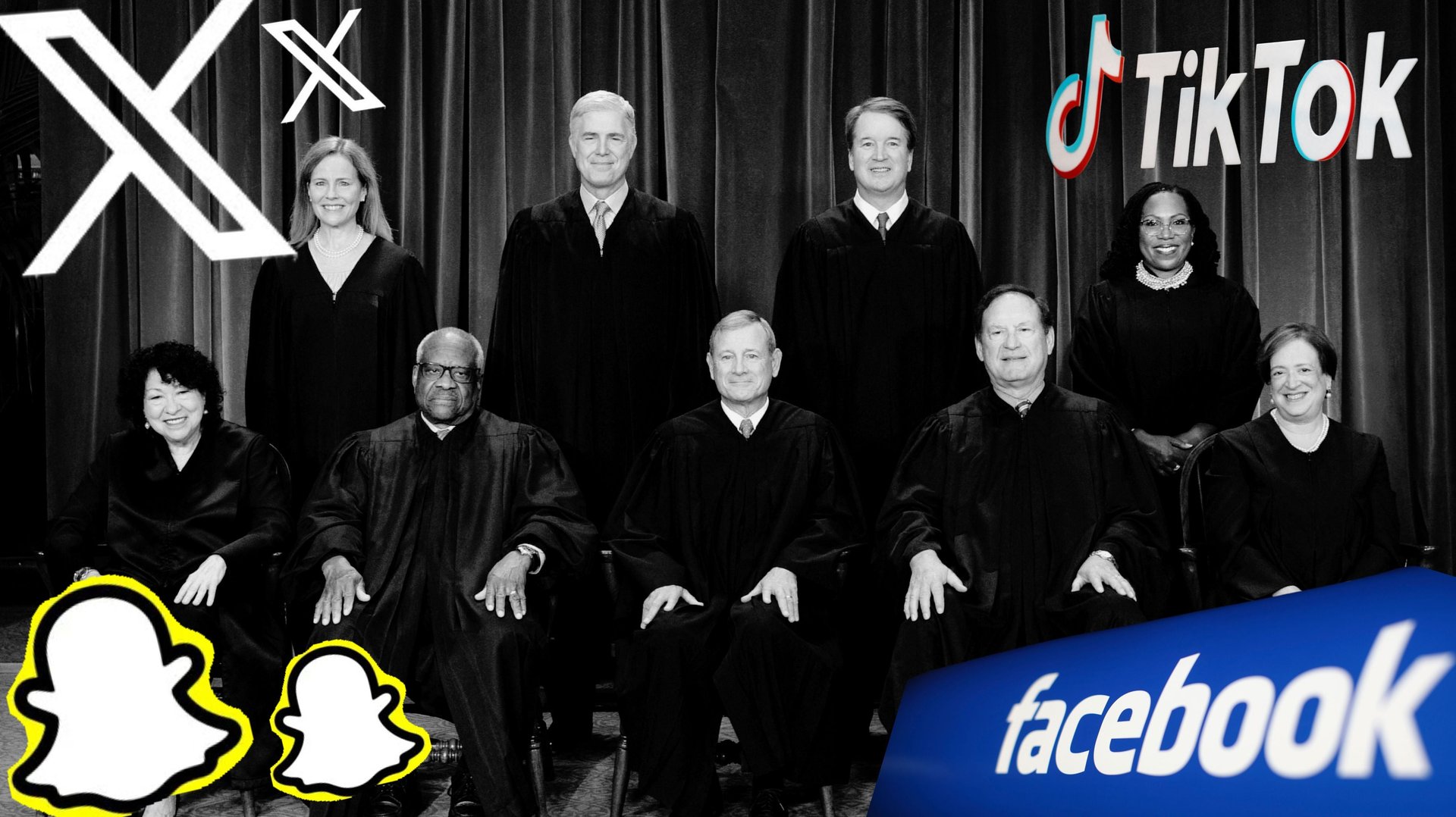Supreme Court arguments over social media laws and free speech are defining social media itself
The justices asked Texas and Florida about how state bans on social media censorship would apply

The Supreme Court heard arguments Monday for two lawsuits about how social media giants should or should not be able to regulate speech on their platforms. Justices went back and forth with state solicitors general and their opposing party, making what may seem like far-fetched comparisons between social media and everything from bookstores to parade organizers and wedding planners.
Suggested Reading
The two cases in question — one from Florida, one from Texas — were brought by NetChoice, a trade association that represents social media sites like Meta’s Facebook, X (formerly Twitter), TikTok, and more. NetChoice said two state laws in Florida and Texas that ban companies from censoring content on their platforms are actually forms of censorship themselves. Paul Clement, the attorney for NetChoice, argued that the laws violate the First Amendment because they “compel speech,” forcing platforms to host posts that violate their policies.
Related Content
Several key ideas were up for debate. Quartz discusses a few here.
Is social media like a newspaper or phone carrier?
At the heart of NetChoice’s argument is that social media platforms are like newspapers, so editorializing content is their First Amendment right.
But Florida solicitor general Henry Whitaker said social media is more like a telephone company (pdf): “If Verizon asserted a First Amendment right to cancel disfavored subscribers at a whim, that claim would fail.”
“The design of the First Amendment is to prevent the suppression of speech not to enable it. That is why the telephone company and the delivery service have no First Amendment right to use their services as a chokepoint to silence those they disfavor,” he said.
Texas solicitor general Aaron Nielson had a similar argument (pdf), but likened social media to a public square. “[I]f platforms that passively host the speech of billions of people are themselves the speakers and can discriminate, there will be no public square to speak of.”
Are algorithms editors?
One concern of justice Amy Coney Barrett is that the state laws would consider algorithms to be editors, meaning that states could ban how algorithms are applied by online sites or other businesses that sell content. Florida solicitor general Whitaker said algorithms are just a means of sites organizing content, not editorializing it.
That led to more concern, though. “Could Florida enact a law telling bookstores that they have to put everything out by alphabetical order…?” Coney Barrett asked.
Whitaker said, no, the state laws prevent social media sites from censorship, not how they organize their content.
But NetChoice’s Clement argued that algorithms are editors: “These algorithms don’t spring from the ether. They are essentially computer programs designed by humans to try to do some of this editorial function.” That means that a Supreme Court ruling allowing the state laws to remain would open the door for lawsuits against how algorithms function.
Are Facebook and X like Etsy?
“We’re not quite sure who it covers,” justice Ketanji Brown told Whitaker about the Florida law.
So Whitaker said the Florida law would apply to sites like Etsy and Uber, meaning those sites couldn’t ban user-generated content unless they provide “thorough rationale.” Meanwhile, Nielson said the Texas state law, which is narrower than Florida’s in scope, wouldn’t apply to platforms outside of classic social media sites.